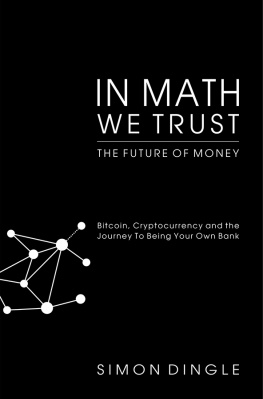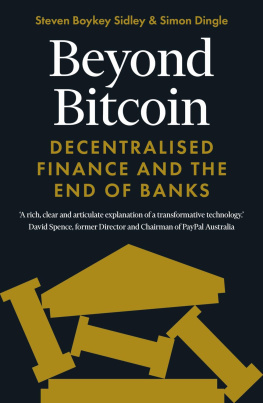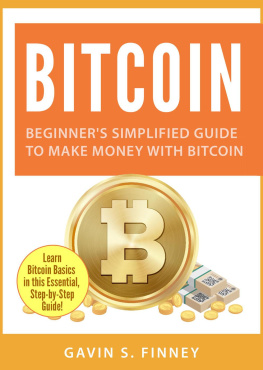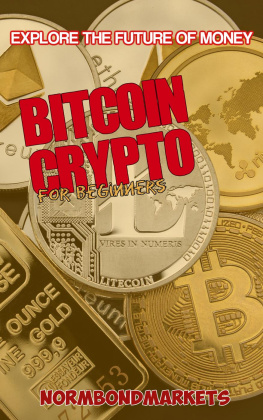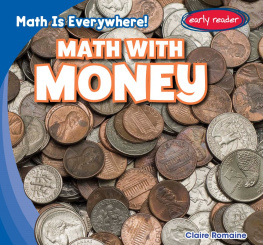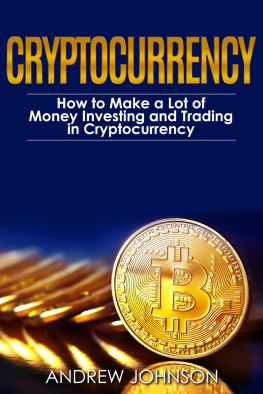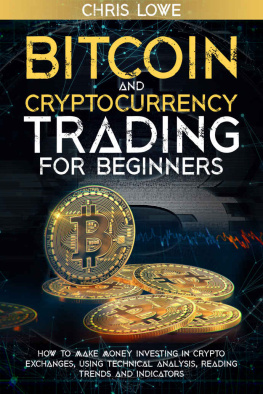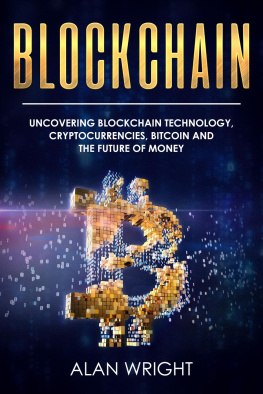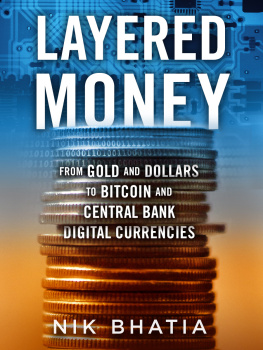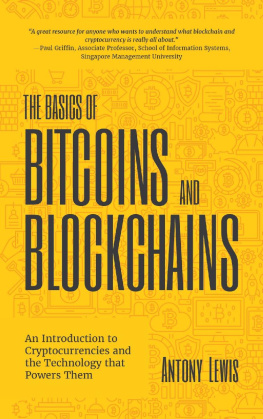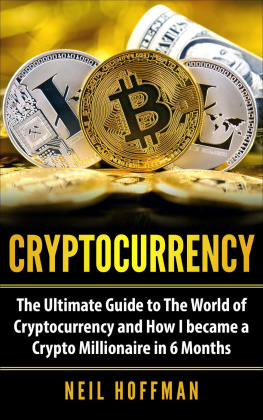MAKING THE
WORLD GO
ROUND
Giving money and power to government is like giving whiskey and car keys to teenage boys.
P.J. ORourke
THE HISTORY OF MONEY is a story of trust.
Money has come with us from the beginning of our cultural evolution and is a symbol of the faith we have in each other. The first tokens of this trust were things like shells and bones and individuals in small tribal groups transacted directly with each other.
We simply relied on our fellow people and the tribe.
This trust relationship changed over time as our groups grew larger. Money had to evolve to keep pace with our abilities for interacting with each other on a larger scale. We left behind the shells, bones, beads and clay chips used by our earliest ancestors and began minting coins in precious metals, imprinted with the images of rulers who guaranteed their value.
Separate groups of people began to trade with each other and more sophisticated structures became necessary as our interactions scaled up. We no longer dealt directly with each other and had to outsource our trust to kings and banks that reinforced their authority with the mythology of gods and borders.
Our information became increasingly ethereal as it transitioned from cave walls onto clay, paper, and finally converted into bits stored digitally. Money, like data, went from something solid and tangible to becoming more temporal and mysterious. We made symbols in the real world from the stories we shared with each other and then brought those artefacts back into our narratives as we invented increasingly complicated games to play with each other, making up rules about value and quality.
As our myths became more elaborate the images of our rulers moved off coins and into newspapers and then the internet as their battles moved on from spears and swords to guns, rockets and, eventually, to news headlines and tweets.
As money transformed, so did its influence. The person with the most money had the most power, and that became more important than the physical objects money could buy. We agreed that things were worth a certain amount of money and so it was, for as long as enough of our peers agreed with us.
Digital money made trade faster and more efficient but meant that value became harder to define and impossible for most to understand.
Our modern forms of money brought much good with them on the one hand, while on the other creating innovative new ways for individuals to suffer as they were swept up in struggles between increasingly powerful and opaque authorities.
Wars have always been about power and power in the modern world is all about money.
Violent conflict has become less common over time as we refined politics and our appreciation for the value of life improved. Our financial systems grew iteratively more reliable and fair as layers of regulation were added and countries found better ways of supporting one another. Fail-safes were installed in attempts to protect us from failures of unscrupulous players in the economic system.
Not only did the average quality of life improve, but we now live healthier and longer lives than ever before during the most peaceful period of human history. This is true in even the poorest countries on the planet, with few exceptions. We owe much of this progress to new economic systems that rewarded innovations in all aspects of life.
But.
For all the good that came with it, the modern circle of economic influence unintentionally created downsides. Our free markets originated from cruel colonial exploitation that created artificial wealth in countries that took without providing value.
Global markets are obsessed with growth for its own sake and a reliance on making you feel inadequate so that youll spend money you dont have on things you dont need. It brings the comforts and benefits of modern living on one hand, while relying on individual uncertainty to sustain itself on the other. While our bodies are healthier than ever before, our minds are plagued with memetic disorders that we are only beginning to appreciate in their severity.
In order to fuel the growth machine people borrow from banks which in turn require more to guarantee their reserves, empowering central banks that control the supply of money and hold the levers controlling our economies. The more spending, the more debt. The more debt, the more new money is required. So the wheel turns as we live under the delusion that growth of business alone equals progress.
The obsession with unsustainable expansion has created a competitive environment in which corporations compete to channel our spending with advanced advertising technology that tracks, measures and optimises the flow of content.
Services like Facebook and Google have weaponised the capture of attention with sophisticated algorithms that were developed before we knew what consequences they would bring. While even the companies that created these systems are now fretting over the damage theyve caused, their growth-obsessed clients applaud the likes of performance marketing and hypertargeting tools.
The entertainment and news that is most captivating attracts the highest revenues from advertising and nothing grabs individual attention more than fear. All advertising is designed to exploit insecurity. No matter how artistic the advertising content is, its sole purpose is to make you feel that something is missing from your life.
The result is that were caught in a cycle of daily news blaring at us from television screens and social media pages, having us believe that disaster is imminent to catch our attention so that well see advertising.
Despite empirical evidence that the average person is safer now than at any previous point in history, many live in fear of impending doom. Things are getting better while it feels like theyre getting worse. The news provides the unintended but convenient effect for our authorities of making us feel less in control.
The subliminal message being created as a by-product is clear: trust the government to protect you. Trust the bank to make sure youll have what you want. Spend more than you earn on things you dont need.
You dont have enough and are not enough.
Fuck that.
We can have all the advances of modernity without having to compromise our self-esteem. Sustainable economic systems are possible without fear. Were on the verge of a new era where not only are we safe and secure, but we know it too.
In 2009 the seeds were planted for a new idea about trust. One that doesnt acknowledge our imaginary borders or discriminate based on privilege. It introduced a new way of doing money that is fair, safe and in the control of the individual. More importantly, it gives us the opportunity to abandon growth for its own sake and take a more considered view of scaling our markets.
This book is about that evolution of trust and how its changing everything from the way we pay each other and store value to how we establish contracts and fund companies.
The hero in our story is a new kind of money that doesnt rely on powerful central authorities and challenges the mythology of nation states.
In this book you will learn what Bitcoin is, where it came from, and how to harness it in your own life. Well explore the notion of being your own bank, and what the new future of cryptographic economics or cryptoeconomics means for existing financial institutions.
***
People spend an inordinate amount of time thinking about money. Many lie awake at night worried about how they will pay the rent. Others are preoccupied with preserving their accumulated wealth in uncertain economies. We worry when we dont have money, and when we have too much of it while no one seems to have just enough.

